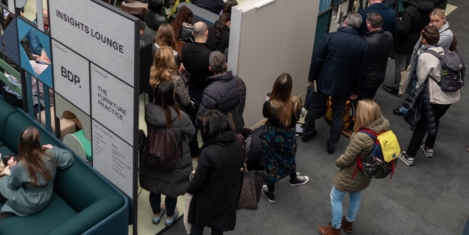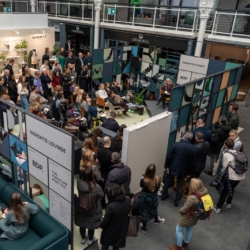To provide the best experiences, we use technologies like cookies to store and/or access device information. Consenting to these technologies will allow us to process data such as browsing behaviour or unique IDs on this site. Not consenting or withdrawing consent, may adversely affect certain features and functions.
The technical storage or access is strictly necessary for the legitimate purpose of enabling the use of a specific service explicitly requested by the subscriber or user, or for the sole purpose of carrying out the transmission of a communication over an electronic communications network.
The technical storage or access is necessary for the legitimate purpose of storing preferences that are not requested by the subscriber or user.
The technical storage or access that is used exclusively for statistical purposes.
The technical storage or access that is used exclusively for anonymous statistical purposes. Without a subpoena, voluntary compliance on the part of your Internet Service Provider, or additional records from a third party, information stored or retrieved for this purpose alone cannot usually be used to identify you.
The technical storage or access is required to create user profiles to send advertising, or to track the user on a website or across several websites for similar marketing purposes.
 Organisations cannot afford to neglect or pay lip service to employee morale if they want to retain talent, according to new research from MHR [registration]. In its latest Employee Experience report – which identifies employee wellbeing as a huge component of morale – MHR reveals that 75 percent of organisations fail to regularly check in on employee needs and attitudes, for example through satisfaction surveys. More →
Organisations cannot afford to neglect or pay lip service to employee morale if they want to retain talent, according to new research from MHR [registration]. In its latest Employee Experience report – which identifies employee wellbeing as a huge component of morale – MHR reveals that 75 percent of organisations fail to regularly check in on employee needs and attitudes, for example through satisfaction surveys. More →






















 MillerKnoll, the global collective of dynamic design brands, has published its
MillerKnoll, the global collective of dynamic design brands, has published its 








December 7, 2023
Has digital transformation led to an upsurge in workplace disinformation?
by Garry Paxinos • Comment, Technology